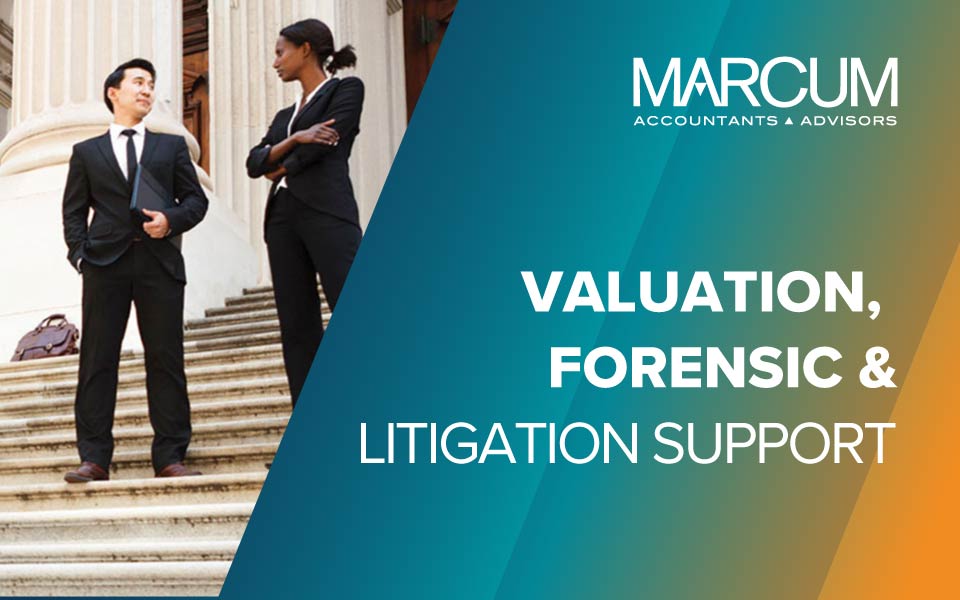Surprise! Gotcha! Unexpected Fraud Audits Yield Results
By Frank Suponcic, Partner, Valuation, Forensic & Litigation Services
Some of you may remember being youthfully innocent, when a devious older sibling, hiding around a corner, suddenly jumps out and scares the wits out of you. You freeze in your tracks. Panic-stricken, you display the absolute pale look of horror. And then they yell, “Gotcha.”
There is nothing quite like the element of surprise, whether it is pulling a childish prank, or investigating the actions of a member of your internal accounting department. Everyone likes to know what is coming, especially those who may be cooking your books or taking advantage of a company with little oversight and deficient internal controls.
When it comes to preventing fraud and embezzlement, the element of surprise is a rarely used preemptive tactical advantage. Today, business executives need to utilize every advantage in their fraud prevention arsenal in the never-ending fight to prevent employee misappropriations.
I want to be cautious in using the term “fraud audit” to describe these types of engagements because a surprise review is in no way similar to any sort of financial attestation project. These reviews are consulting engagements that may not even be accompanied by a written report unless one is requested by the client.
Prior to commencing such a proactive fraud prevention program, we sit down with the client to review areas of potential vulnerability and, depending on transactional volume, can even zero in on specific types of transactions. The timing of site visits is coordinated with the company executive so that we are not impinging on the affected employees’ busier days, such as payroll or month-end closings. Prior to our arrival, management would convey to all employees that such a program is being initiated so that the staff are made aware and not totally surprised when the unfamiliar faces of outside accountants show up at their desk asking to see various source documents, files and records.
These engagements are all customized, based on the client’s request, needs and overall risk exposure. We have rotated the target of these reviews on a random basis to always keep the internal accountant guessing what we will review next.
For example, for one company we were engaged to show up unannounced on a quarterly basis. On the first day, the accounting staff were taken a little aback at the lack of notice, but soon understood the value. And most important, they were cooperative. In the first quarter we examined checks greater than $1,000, along with the related supporting documentation. The next quarter we examined employee expense reports. Next we looked at credit cards and electronic fund disbursements, then payroll reporting, and so on. The amount of time spent on the respective examination and frequency are both determined by the client. This approach enables the client to control the cost associated with the initiative.
Surprise fraud audits typically have entailed a review of:
- Employee expense reports
- Credit card expenditures
- Any disbursements to company employees, spouses or family members
- Payments to “cash”
- Check disbursements and the underlying supporting documentation
- Electronic disbursements
- Payroll
- Disbursements based on dollar amount criteria
- Bank account reconciliations
- Adjusting journal entries
The fraud prevention message of having outside professionals regularly onsite to independently review various transactions is immeasurable. If someone was thinking of perpetrating a fraud, the fact that someone is regularly looking at selected transactions usually makes those with questionable morals and ethics think twice. The tactic also reinforces the anti-fraud tone at the top.
We have had clients effectively implement quarterly fraud audits. As a result, the success of the program has reduced the type of the annual attestation engagement from an audit to a review or a review to a compilation. These engagements are a better use of accounting dollars and the deliverable, and peace of mind, supersedes the perceived value of performing a traditional financial statement project.
A fraud audit is an effective, yet seldom used, fraud prevention measure. Charles de Gaulle once said, “A true leader always keeps an element of surprise up his sleeve, which others cannot grasp but which keeps his public excited and breathless.” We could not agree more, General.
Do you have questions about fraud prevention measures, or other fraud and forensic financial investigation issues? Please contact Frank Suponcic, Partner, Valuation, Forensic & Litigation Services.



















